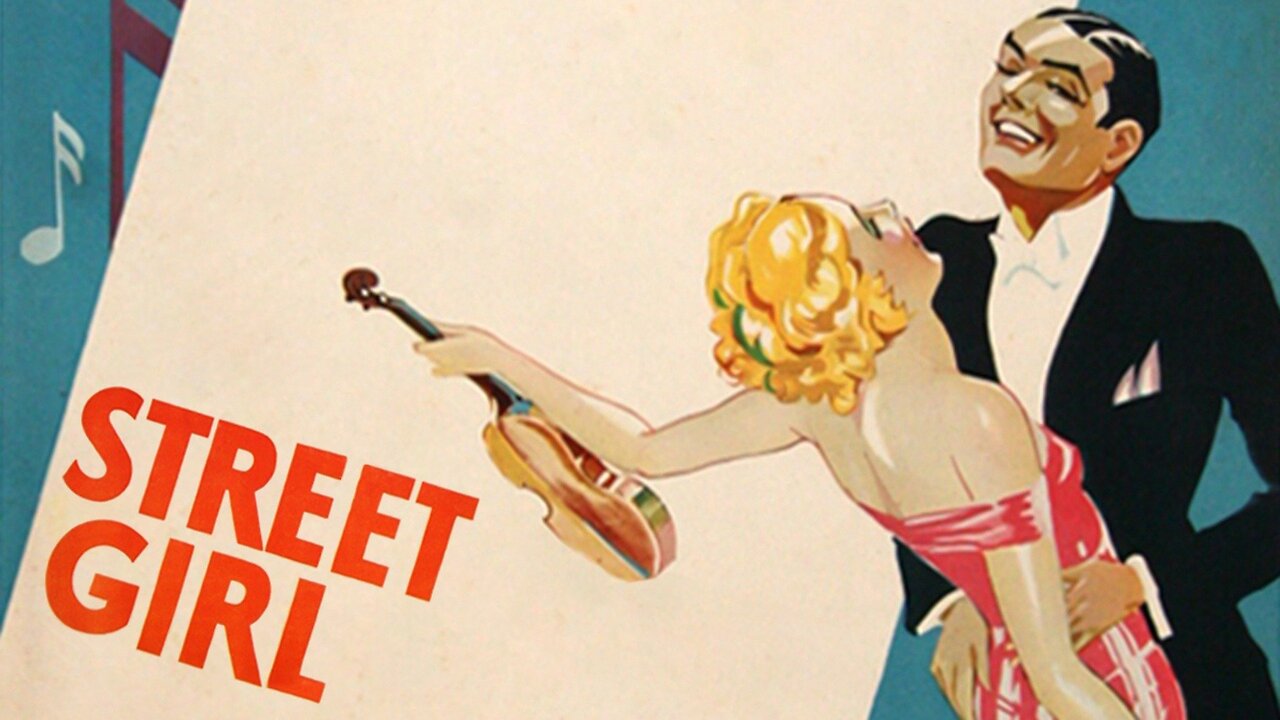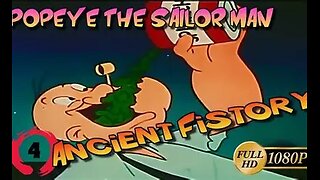Premium Only Content

Street Girl (Musical drama, 1929)
Street Girl (1929) is a pre-Code musical drama directed by Wesley Ruggles and notable as the first film produced by RKO Radio Pictures, though it was their second release after Syncopation. Starring Betty Compson, John Harron, Jack Oakie, and Ned Sparks, it’s a charming blend of romance, comedy, and jazz-infused musical numbers, adapted from W. Carey Wonderly’s short story “The Viennese Charmer” by screenwriter Jane Murfin.
The plot centers on Frederika “Freddie” Joyzelle (Betty Compson), a Hungarian immigrant and skilled violinist who finds herself homeless and hungry in New York City. One night, she’s rescued from a harasser by Mike Fall (John Harron), a member of a struggling jazz quartet called The Four Seasons. The group—Mike on piano and trumpet, Joe Spring (Jack Oakie) on clarinet, Pete Summer (Guy Buccola) on accordion and guitar, and the perpetually glum Happy Winter (Ned Sparks) on violin—takes her in, offering her food and a place to stay in their cramped, rundown apartment. Freddie quickly proves her worth, first by tidying up their lives and then by leveraging her musical talent and determination to boost their careers.
After the band gets fired from their low-paying gig at a dingy café (thanks to Freddie demanding a raise), she secures them a better job at the Little Aregon Café, owned by Keppel (Joseph Cawthorn). She joins them as a part-time violinist and cigarette girl, and her presence transforms the quartet’s fortunes. The café gains fame when Prince Nicholaus of Aregon (Ivan Lebedeff), visiting to secure funding for his country, recognizes Freddie and kisses her forehead during a performance. The publicity from this moment skyrockets the café’s popularity, leading Keppel to raise the band’s pay from $300 to $3,000 a week after a bidding war with a rival club owner. The group moves into a swanky new apartment, and their success peaks with the opening of the upscale Club Joyzelle.
Romantic tension drives the story’s conflict. Mike falls for Freddie, but her interaction with the prince sparks jealousy, prompting him to impulsively quit the band. Freddie, however, remains focused on their collective success, and with the prince’s help, she and Mike reconcile just in time for Club Joyzelle’s grand opening. Even Happy Winter manages a rare smile by the end. The film’s fairy-tale vibe is enhanced by Freddie’s fictional homeland of Aregon, a stand-in for Austria that adds a whimsical touch.
Musically, Street Girl shines with songs by Oscar Levant and Sidney Clare. “Lovable and Sweet,” performed by the quartet (dubbed by Gus Arnheim and His Coconut Grove Ambassadors), is a catchy jazz number repeated multiple times, while Freddie’s violin solo “My Dream Memory” (dubbed by Russ Columbo) offers a tender contrast. Doris Eaton’s rendition of “Broken Up Tune” adds a lively finale. The film’s early-talkie sound quality is impressive for 1929, and its breezy 87-minute runtime keeps the pace brisk, though some scenes drag slightly.
Betty Compson, a silent-film star transitioning to sound, brings warmth and grit to Freddie, her real-life violin skills adding authenticity (despite the dubbing). John Harron is earnest but stiff as Mike, while Jack Oakie’s comedic flair and Ned Sparks’ deadpan grumpiness steal scenes—especially when Sparks emerges towel-clad, unaware of Freddie’s presence, in a pre-Code nod. The movie’s charm lies in its simplicity: a rags-to-riches tale of friendship and resilience, wrapped in toe-tapping tunes.
A box-office hit, Street Girl grossed over $1 million ($806,000 domestic, $198,000 overseas), netting RKO a $800,000 profit—nearly half their annual earnings. Its success led to two RKO remakes: That Girl from Paris (1936) and Four Jacks and a Jill (1941). While not a groundbreaking musical, it’s a delightful snapshot of early sound cinema and jazz-age optimism, released just months before the Great Depression hit.
-
 7:00
7:00
Silver Screen Echoes
1 month agoPopeye - Ancient Fistory (Cartoon, 1953)
461 -
 2:45:13
2:45:13
Barry Cunningham
11 hours agoCBS CAUGHT AGAIN! CHICAGO A MESS! LISA COOK IS COOKED AND MORE LABOR DAY NEWS!
82.9K38 -
 LIVE
LIVE
StevieTLIVE
5 hours agoMASSIVE Warzone Wins on Labor Day w/ Spartakus
133 watching -
 10:46:42
10:46:42
Rallied
11 hours ago $12.73 earnedWarzone Challenges w/ Doc & Bob
177K3 -
 3:26:25
3:26:25
Joe Donuts Live
4 hours ago🟢 Lost in Space with My Clones: The Alters Adventure Begins
21.6K -
 7:20:22
7:20:22
Dr Disrespect
13 hours ago🔴LIVE - DR DISRESPECT - TRIPLE THREAT CHALLENGE - WINNING AT EVERYTHING
203K12 -
 2:35:33
2:35:33
Chrono
5 hours agoBirthday-eve Stream | Helldivers II
18.4K1 -
 54:40
54:40
BonginoReport
1 day agoLABOR DAY SPECIAL! The Best of Nightly Scroll - Nightly Scroll w/ Hayley Caronia (Ep.124)
119K14 -
 2:39:21
2:39:21
Joker Effect
3 hours agoReviewing the downfall of Kick Streaming. Kick streamers welcome to Rumble! Stake bombshell found!
27.9K1 -
 1:06:10
1:06:10
Russell Brand
13 hours agoThe Greatest Lie Ever Told? - SF625
92K110